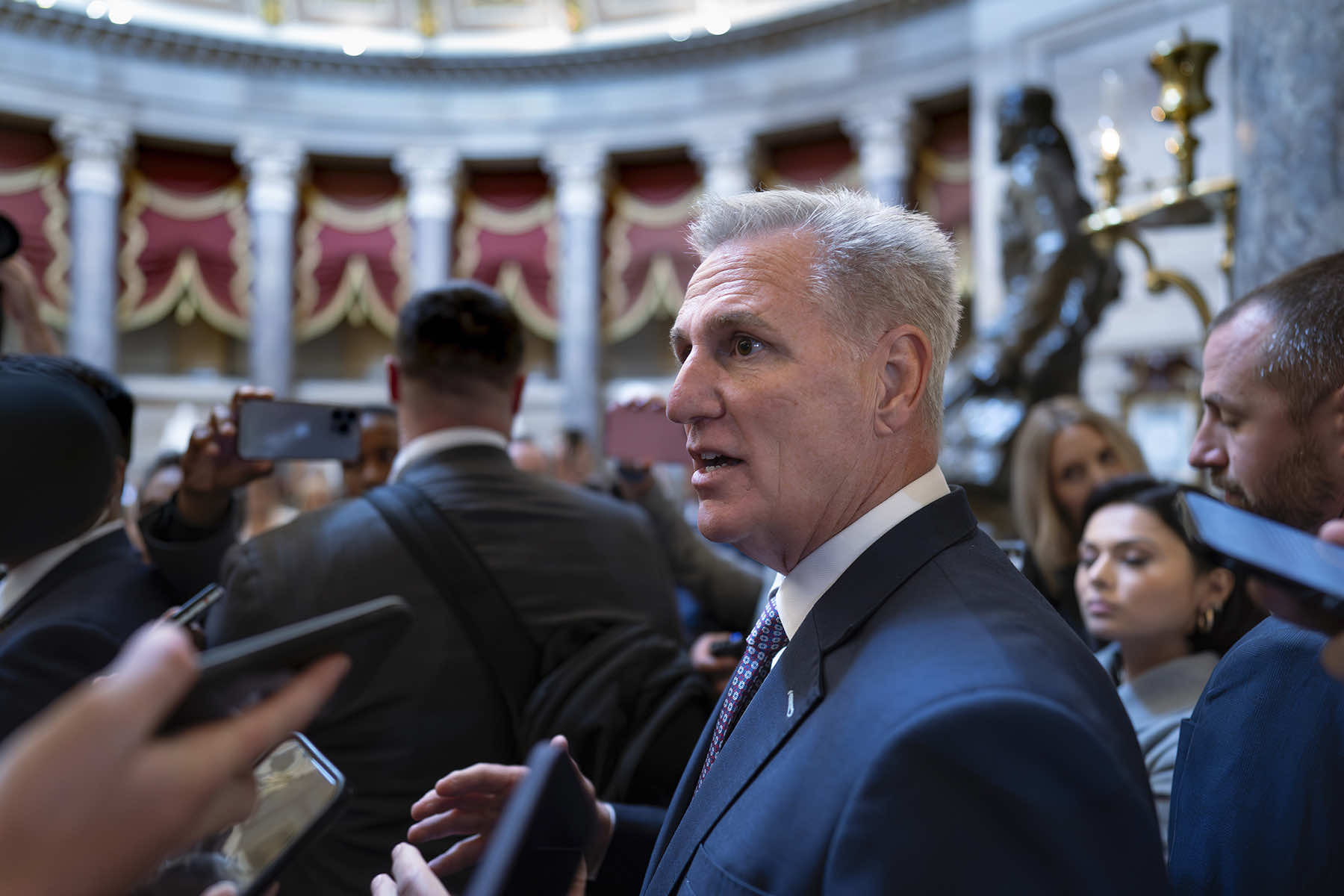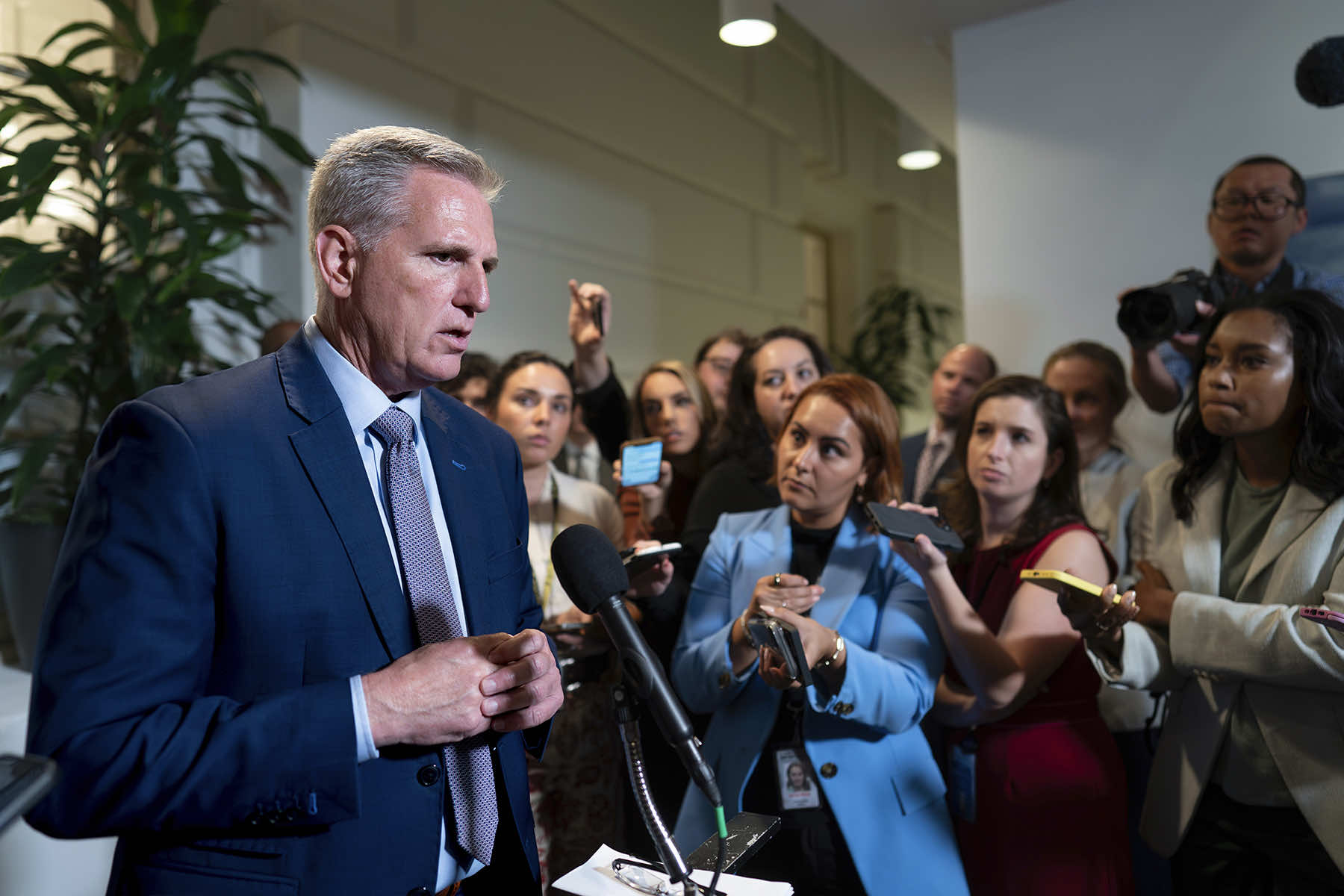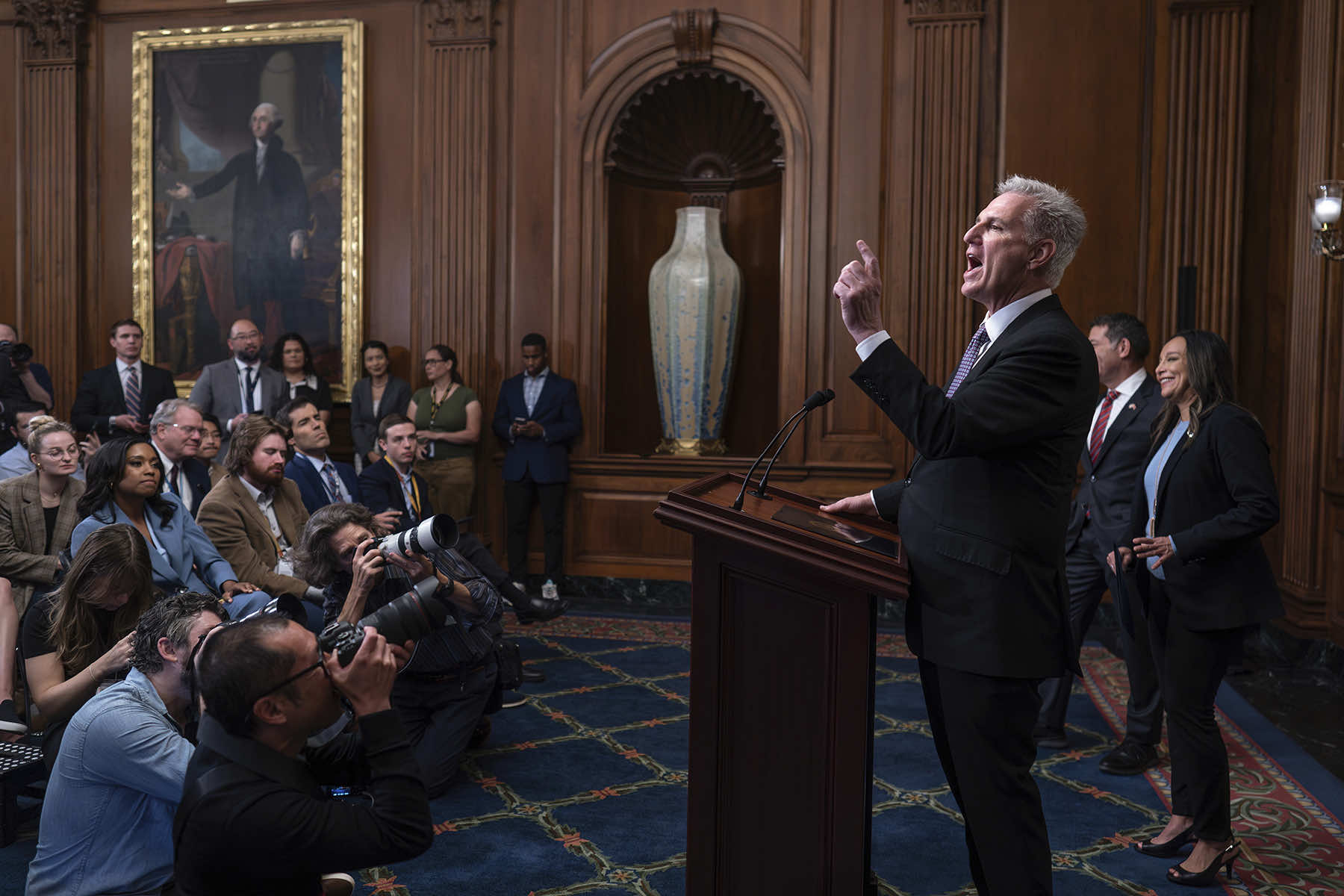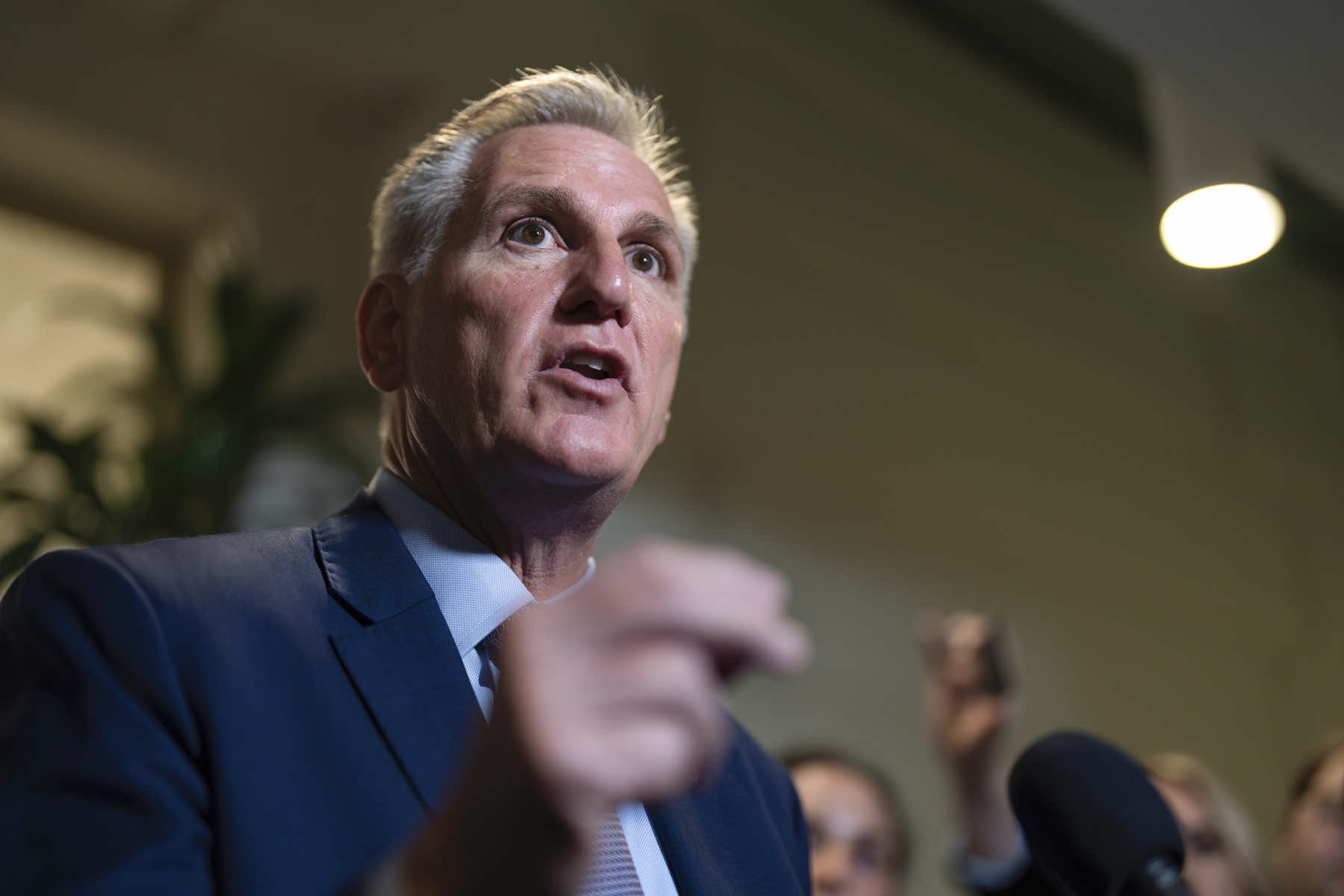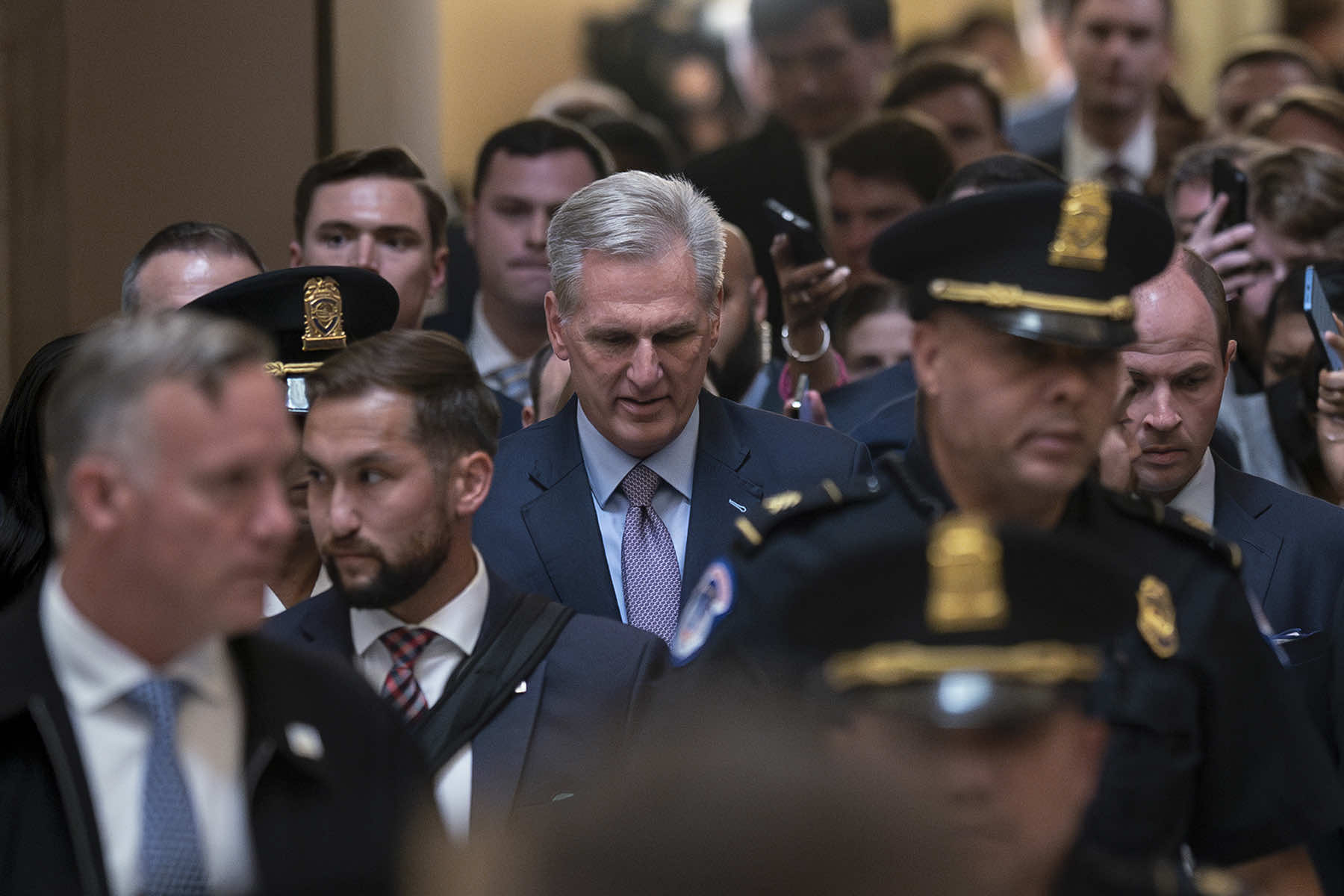
By Charles R. Hunt, Assistant Professor of Political Science, Boise State University
The House of Representatives on October 3, 2023, did something that had never been done before in the nation’s history: It ousted the speaker of the House. Kevin McCarthy, a California Republican, lost his job in a vote of 216 to 210.
To look deeper than the surface machinations, political scientist Charles R. Hunt at Boise State University was asked for his perspective. He offers a sense of what this historic development might mean for the government at the moment, as well as for American democracy over the longer term.
Do House members want to do what the public wants them to do – get things done?
Americans say they don’t want to be focusing on these fights. But there are members of Congress for whom these fights are really important to how they represent — like Florida Republican Matt Gaetz — who hail from very Republican districts and have staked their reputations on fighting establishment figures in their own party like Kevin McCarthy. Likewise, many Democrats back in 2019 or 2020, when they held the majority in the House, felt they had a responsibility to their mostly Democratic constituents to bring the fight to President Donald Trump.
For some in the GOP, there is also this ideology of smaller government, less spending, lowering the national debt – the more typical conservative Republican priorities. They are not new, but there is now this sense that being anti-establishment, and trying to wield power to its greatest possible extent, is a goal in itself.
Some voters have looked at how the House has operated over the past couple of decades and thought, “we don’t want any more of that.” So they are willing to put their trust in the hands of some of these people who want to, figuratively at least, burn the place down – even if there is no clear exit strategy for what happens next. The lack of a plan after McCarthy’s ouster seems to show that obstruction is kind of the point.
How can people understand these events in the context of America’s system of representative democracy?
Gaetz has been saying he doesn’t like the process, that he wants to go back to “regular order,” in which budget proposals are voted on separately, instead of in huge omnibus spending bills. He and others just see that the way the House is conducting its business is not working. In Congress, those concerns are mainly coming from the far left and far right. They relate to the increasing polarization in this country, and Congress mirrors that growing division.
Democrats are getting more progressive, and Republicans in particular are getting more conservative over time. This is in part because districts are becoming more and more safe for one party or the other. So the average district is less likely to produce a moderate member of Congress. That increases the influence of party primaries. The voters who participate in these elections tend to be pretty ideologically extreme Republicans and Democrats who don’t want to see their representatives working with the other side.
And the more polarized the country gets, the more you see this element of negative partisanship, where a representative’s voters are more driven by how much their candidate is willing to fight against the other side, rather than how much they’re getting done for their own side.
Why isn’t this kind of drama happening in the Senate?
The cultures of the two institutions are really different, even today. George Washington is said to have described the House as a cup of hot tea that was going to overflow with the passions of the “common people,” and the Senate would be the saucer that would catch that overflow.
This session, both institutions are living up to those reputations. The first reason is that House districts are smaller. They can be drawn in very specific ways and gerrymandered and are more subject to geographic sorting, so you end up with really extreme districts, politically.
Whereas in the Senate, they represent whole states. They typically have to represent a lot more people than a House district, a much broader constituency. That can lead to adopting a more consensus-driven tone.
The rules of the Senate are also much more consensus-driven. Rules like the filibuster and Unanimous Consent Agreements can force more moderate senators to work together to reach a kind of consensus.
Plus, because it is a smaller body, there is generally more collegiality. These senators know each other better, and so even between the parties you get people teaming up on legislative proposals a lot more often.
Finally, Senate leadership is less powerful. Mitch McConnell, when he was the majority leader, wielded a great amount of procedural power, and Chuck Schumer does now, but much less than the speaker does in the House. This creates a lot of the friction in the House between leadership and rank and file that you don’t typically see in the Senate.
What are the key differences that help explain how these different House members are behaving?
This is the big question Americans ask: Why on Earth does Congress do any of the things it does? It may not seem like it, but members of Congress have incentives for doing what they do. There are the incentives of Congress as a whole. There are the incentives of the two parties, which is why they meet in their conferences and caucuses to strategize.
But individual members also face very different pressures in their different districts, even if they’re in the same party. Consider Gaetz, whose district Trump won by almost 40 points. He faces no serious challenge in a general election against a Democrat because it’s mostly Republicans in the district. The only race that really matters in this district is the primary.
By contrast, think of a moderate Republican from New York in a district that Joe Biden won by four or five points. This person understands that to get reelected, they need some critical mass of independents and maybe even some Democrats to support them.
Ultimately, the only constituency that any member of Congress must be responsive to is the one in their district. In political science, we call it dyadic representation. It’s a pairing, a dialogue, between a member and their constituents. And that is ultimately what they are thinking about, or, at least, they should be thinking about if they want to get reelected. This is how you get these divergent approaches to governing.
J. Scott Applewhite (AP)
Originally published on The Conversation as Ouster of Speaker McCarthy highlights House Republican fractures in an increasingly polarized America
Support evidence-based journalism with a tax-deductible donation today, make a contribution to The Conversation.

